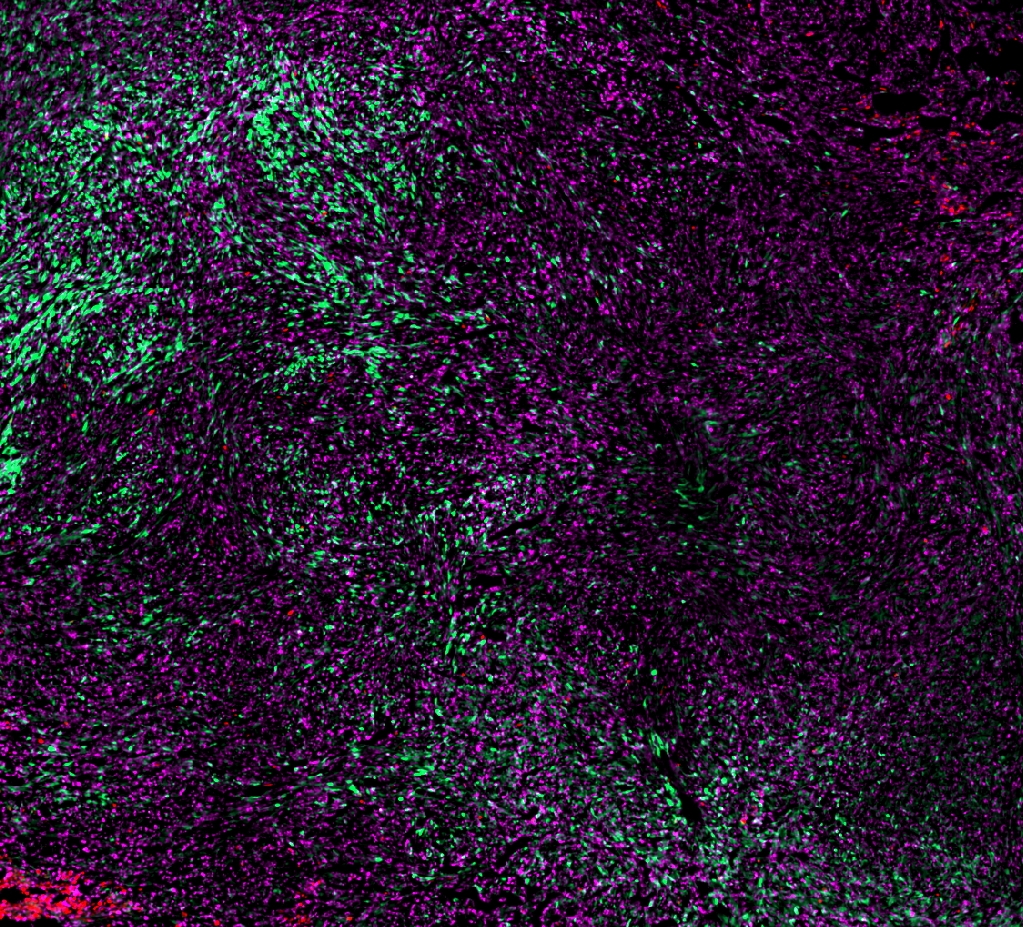
Research interests
The field of cancer has blossomed during the last decade, thanks to advances in genome technology and to successful application of basic insights from immunology to the clinic. Cancer genomics studies have revealed how tumors differ in their molecular make-up. These differences can explain why different tumors respond to different drugs, and suggest how to personalize therapy. Decades of immunology research have identified how the immune system protects the organism against cancer and the molecular signals that coordinate immune response. These basic insights have are now starting to bear fruit in the clinic through immunotherapy.
At the same time, these advances have produced new challenges. One challenge is that cancer cells can escape anti-cancer therapy, especially in advanced cancer patients. Another challenge is that only ~20% of patients benefit from immunotherapy, in a limited number of cancer types.
In the lab, we do research with potential impact on both challenges.
Evolutionary constraints of cancer cells
Within a tumor, single cancer cells express different genes. These differences can provide resistance against anti-cancer therapy because a given therapy may fail to eliminate the diversity of cancer cells. We want to map the evolutionary limits of this diversity, and explore how these limits can be exploited to treat heterogenous tumors.
We previously researched the evolutionary constraints of solid tumors. We found that tumors from different cancer types face universal trade-offs and that these trade-offs provide a theoretical framework to integrate gene expression, drug sensitivities and genetic alterations. We are now interested in mapping the evolutionary trade-offs faced by single cancer cells.
Quantitative rules in tumor biology
We research quantitative rules in tumor biology. We aim to formulate these rules in the form of equations that state how key tumor properties relate to each other: cellular composition of the tumor, functional heterogeneity among cells found in the tumor, spatial organization, tumor growth rate, tumor size, shedding rate of metastatic cells, and so on. Finding mathematical order in the complexity of the tumor micro-environment could support immunotherapy in the future, much like the laws of mechanics and aerodynamics presently support the design of cars and airplanes.
In the past, we researched quantitative rules in gene regulation. We now aim to apply this research approach to tumor biology. The research vision is to explain why certain immunotherapies fail on certain tumors and suggest what therapies may be effective.
Research tools
Our research combines computation and experiments, as is often done in systems biology:
- developing new data analysis approaches
- performing mouse experiments to follow tumors in time and characterize their response to therapeutic or genetic perturbation
- physics-style mathematical modeling
